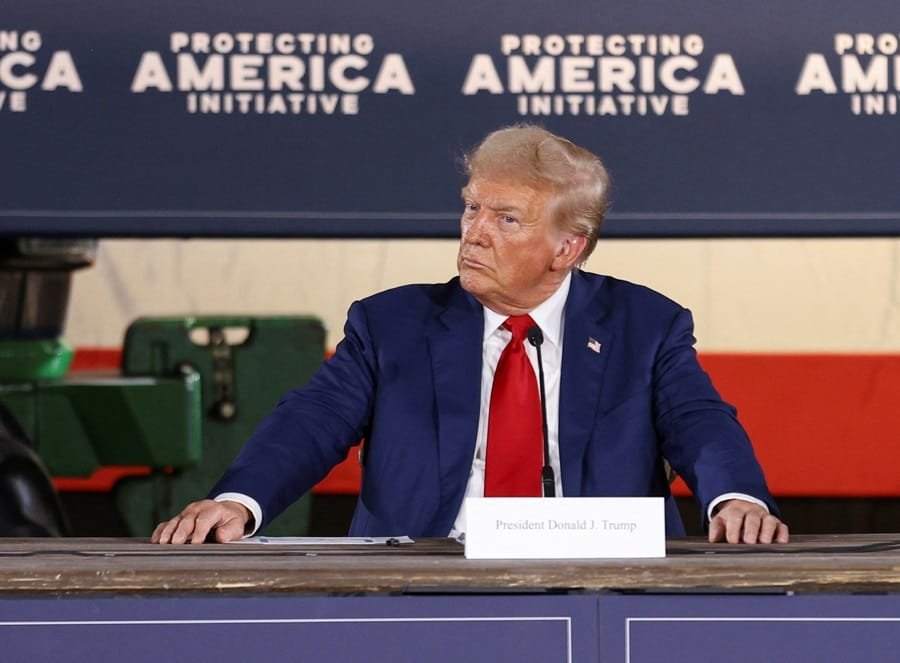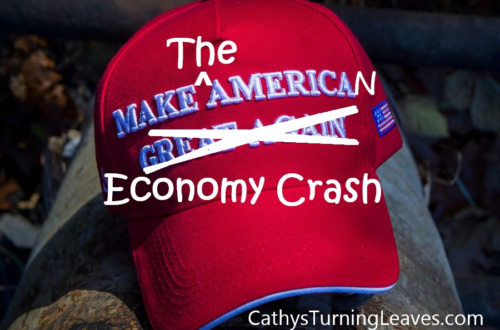
Trump’s Troublesome Tariffs (Update Nov 10)
Rather than make a new tariff post, I’m adding an update to my original post, which you can find below.
I’m seeing an incredible amount of confusion, ignorance and misinformation about Trump’s proposed tariffs. He’s saying he wants a 60% tariff on everything imported from China, and 20% on anything imported from any other country. People are not understanding that this will cause higher prices across the board on everything, and I mean everything bought and sold in this country. That includes anything manufactured or grown here.
Almost everything manufactured here requires imported components, materials and parts, because we are unable to produce/supply those components, materials and parts, or we can’t supply enough for our own needs. This includes the ingredients for fertilizer and the materials to produce farm equipment so we can grow food. Even if we open enough factories to manufacture everything we need, the tariffs we would need to pay for those imported components, materials and parts will cause higher prices for the consumer.
I’ve seen multiple posts on social media and multiple interviews with random “people on the street”, in which people are saying, “China is the one who will be paying the tariffs; it won’t affect the prices we pay”. That’s such messed up, illogical thinking, it makes my head hurt.
China will NOT be paying the tariffs. The tariffs are paid by the United States importer when the goods arrive at the United States ports. But let’s pretend for a minute that China pays the tariffs on their end. It would work something like this:
It costs a Chinese exporter $75 to acquire a certain batch of goods. He sells it to an American buyer for $100. The American then sells it to his distributors for $125. The Chinese seller and American buyer have each made a profit of $25.
Now add the 60% tariff that Trump wants to implement. The Chinese exporter now has to charge the American buyer $160 for the same goods. The American still wants to make a profit of $25, so now he has to charge his distributors $185 for the goods for which he was formerly charging $125. The distributors and all the other middle men will have to pay more, which means they have to raise their own prices, and by the time the consumer (you and me), buy the products, we have to pay much more than we did before.
Except that scenario is wrong, because it’s not the Chinese paying the tariff, like so many insist on believing. Here’s a simplified explanation of how it will actually work:
It costs a Chinese exporter $75 to acquire a certain batch of goods. He sells it to an American buyer for $100. The American then sells it to his distributors for $125. The Chinese seller and American buyer have each made a profit of $25.
Now add the 60% tariff that Trump wants to implement. The Chinese exporter still sells it to the American buyer for $100. But when the American buyer accepts the goods at the port, he has to pay $60 in tariff fees. The goods that formerly cost him $100 has now cost him $160. He wants his $25 profit, so now he has to charge his distributors $185 for the goods that he was formerly charging $125 for. The distributors and all the other middle men will have to pay more, which means they have to raise their own prices, and by the time the consumer (you and me), buy the products, we have to pay much more than we did before.
The madness doesn’t stop there, though. Since everything suddenly costs more, people will start buying less. When the consumer starts buying less, then the retail store and all the middle men back to the original American importer will be selling less, and all of them will have to start laying off workers.
Following are two quotes I have copied verbatim off of social media. These represent well two of the trains of thought I’m seeing over and over. The two people I’m plagiarizing posted these AFTER it was explained to them why tariffs will be paid by American importers, and why that will mean higher prices for the American consumer.
[Quote 1] So it creates American jobs, uses American materials, AND lower the cost to the consumer? Why is that a problem?
[Quote 2] So we will buy American made and not china made, not a problem. Let take money and power away from China!
Why are people so dense? It’s not that hard to understand!
Of course this is all up in the air. Trump hasn’t been sworn in yet. Maybe he will decide to take a different track. I also keep wondering what will happen if he becomes incapacitated due to his health issues before he’s sworn in. Will Vance implement the same tariffs Trump wants, or will he do something else?
For the next several weeks, it’s a wait and see game.
Original unedited post below, first published Sep 29, 2024
One of Trump’s big talking points is his proposal to raise tariffs on everything that we import. He says that it will bring back manufacturing and lower prices.
Trump already raised tariffs on a lot of things during his first term. He especially targeted China and imposed a 25% tariff on many types of goods from that country. Biden decided that wasn’t good enough, and raised Trump’s 25% to 100%. Now Trump wants to raise the rates again, not only on Chinese goods, but on everything from other countries as well. Enough already! I want manufacturing to come back to the U.S. as much as anyone, but raising tariffs is not the simple solution. Real Estate mogul Trump does not understand global trade and the economy, and he most decidedly understands nothing about food production.
Imposing and raising tariffs on everything would hurt U.S. manufacturing, cause runaway inflation, cause food shortages, and throw the global economy into chaos. Keep in mind, tariffs are not paid by the countries that the goods are coming from. It’s the people bringing them in who have to pay them, and they have to pass those costs on to the buyers. The buyers at the end of the line are we, the consumer. This topic is complicated enough to justify an entire book, but I’ll mention a few key points.
A great many materials used in manufactured goods cannot be found in enough quantity in this country to meet our needs. One example is tin. We use lots of tin, but there are no deposits of it here large enough to mine. A number of minerals needed for electronics and many other categories of goods are extremely scarce here. “Electronics” doesn’t just refer to phones and luxury items. This includes everything from medical devices to military equipment to everything in between.
Most ingredients for manufacturing pharmaceuticals are imported. Prescription drugs are already high enough without making them even more expensive.
In the last century or so, as transportation technology has gotten increasingly more sophisticated and efficient, most of the world has enjoyed an unprecedented year around bounty of food. When we have an abundant harvest of a crop, we’re able to ship the surplus to a country that had a poor harvest. When we have a bad crop, we are able to import from a country that has a surplus. If we had to suddenly pay a high tariff on those food imports, grocery prices would go up.
And then there are the foods that can’t be grown here and must be imported. There are many, but a few include coffee, cocoa, vanilla, black pepper and bananas. Just how much are you willing to pay for your coffee?
There are still more ways food would be affected. For example, Italy doesn’t have enough arable land to feed their large population, and they must have their pasta. Nevada is a major producer of a special type of durum wheat which is exported to Italy. Italy then uses that wheat to make pasta for their selves, and they export their extra pasta. The United States is the second largest (after China) importer of Italian pasta. So how would that work out? We sell them the wheat, but pay more to get the pasta back? Yeah, we could keep the wheat and make our own pasta, but 1. It takes time to get production going, 2. A great many factories are already having problems getting enough workers, and 3. We’re supposed to just break all contracts with one of our closest allies and leave them out in the cold?
It’s not just direct imports and exports of food that would be affected. The United States also has to import the elements for making fertilizer. We’re able to supply some of our own, but not nearly enough, so we have to import things like potash, phosphates, nitrogen and more. If the costs to import them goes up, food prices will go up.
There are so many more ramifications to higher tariffs, but I can’t cover it all in a blog post.
If Trump gets elected, get ready to tighten your belts. You can do without some things, but we all have to eat, and that’s what has me most concerned.







2 Comments
Valerio Zintara
Hey, loving the depth of insight you’ve brought into the tariff impacts. This definitely helps in understanding who really ends up bearing the cost—surprising how much misinformation is out there.
Quick question though: even if manufacturers in the U.S. start producing components locally to avoid these tariffs, wouldn’t that still lead to increased costs somehow? Interested in how that balancing act would work out.
Thanks for shedding light on this complex topic!
Cathy Zeiler
Yes, prices will still be higher even if we’re manufacturing our own, because we have to use imported components and materials used in manufacturing the goods.
For example, although we already manufacture most of our toilet paper here, most of the wood pulp used in making it is imported from Canada. So if manufacturers have to pay a tariff on the wood pulp, it will cost them more to make the toilet paper, and they have to pass that increased cost on to the consumer.